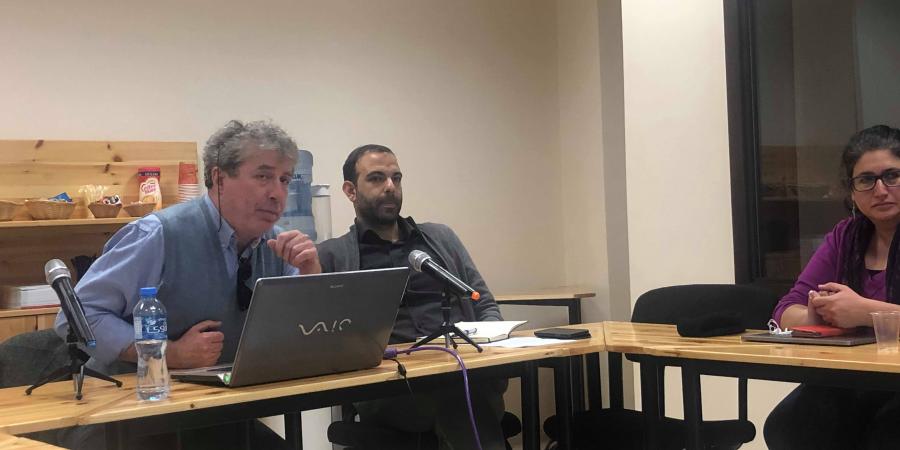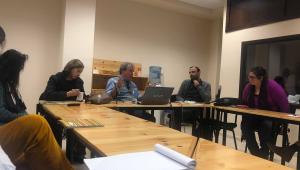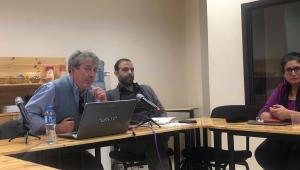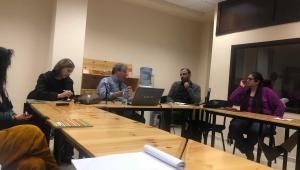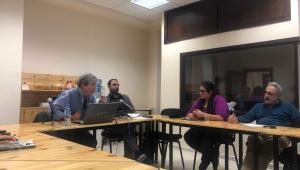Fabio Mugnaini, professor of European ethnology, performance anthropology, and history of folklore at the University of Siena in Italy, led a seminar on everyday life, tradition, and heritage policies in Italy, on Saturday, January 26, 2019.
In the seminar, hosted by Muwtain Institute for Democracy and Human Rights at Birzeit University, Mugnaini noted how, in recent years, methodologies of ethnography, and anthropology to a wider extent, began seeping into other disciplines and areas, stating that ascertaining differences in worldviews and cultures were not the exclusive purview of anthropology anymore.
Mugnaini discussed the work of Ernesto de Martino, a famous Italian anthropologist, who declared that there was a need for Western cultures to widen their interaction with other cultures and nations. Mugnaini commented that de Martino was interested in how folklore and traditions were ignored by academics at that time.
Anthropology, Mugnaini said, had become the study of the other and the inner other - as in the lower strata of the society - and this change led to the emergence of the notion of folklore, which began in a journal in the middle 19th-century, which dedicated a column to stories of peasants and workers - the folk lore.
Mugnaini added that it was also at that time that national borders were fortified, precipitating the birth of the modern state, and common heritage was established as a vital tool in protecting the integrity of the nation-state. Heritage and folklore, he remarked, were introduced in academic circles, an attention, which translated into museums and shows that painted them as part of the national identity.
In the case of Fascist Italy and Nazi Germany, Mugnaini observed, the governments appropriated folklore and heritage, connecting the national identity, folklore, and heritage to the fascist and Nazi ideologies. After the WWII had ended, Mugnaini said, both Italy and Germany made efforts to disconnect their folklore and heritage from the authoritarian governments that had controlled them.
Mugnaini then moved to the notion of everyday life in anthropology, noting that such an idea was not modern in its implementation or conception. He discussed Pierre Bourdieu’s most influential concepts, cultural capital, which denotes the group of representative elements such as skills, tastes, and credentials that one obtains by being part of a particular social class, and Habitus, the physical incarnation of capital culture.
Mugnaini also explored Michel de Certeau’s “Practice of Everyday Life,” which defines two concepts: “Strategies” and “Tactics,” explaining that the former is the product of institutions of power that govern space, while the latter are deployed by individuals to obtain temporary autonomy.
In ac felis quis tortor malesuada pretium. Curabitur blandit mollis lacus. Phasellus volutpat, metus eget egestas mollis, lacus lacus blandit dui, id egestas quam mauris ut lacus. In enim justo, rhoncus ut, imperdiet a, venenatis vitae, justo. In ac felis quis tortor malesuada pretium.

